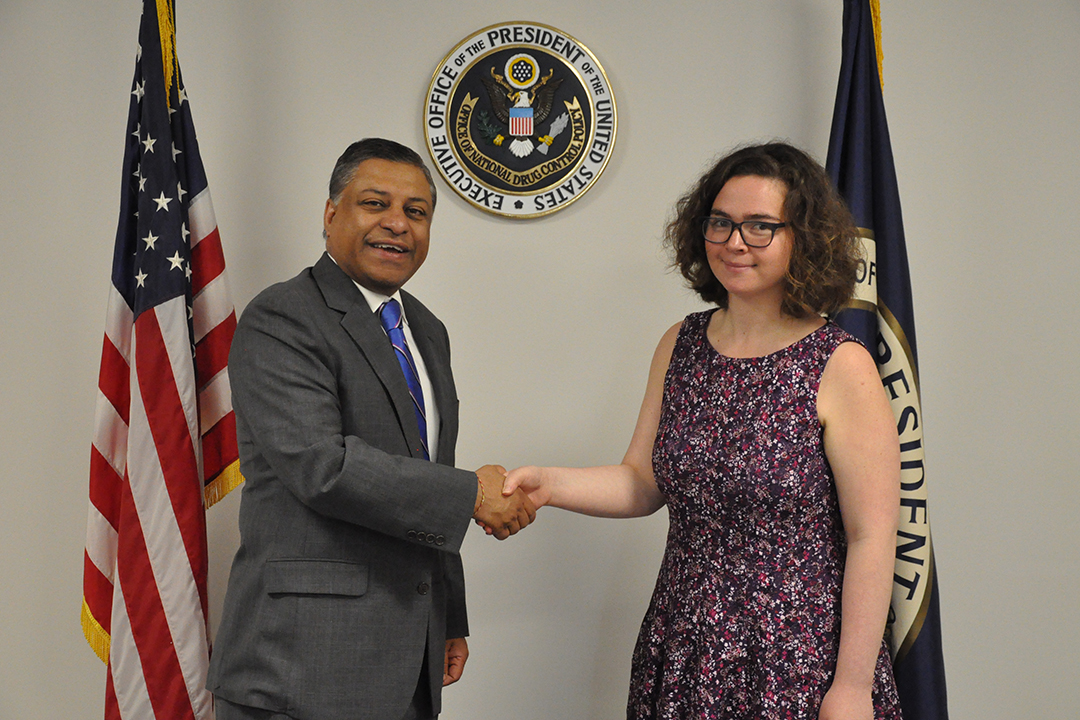MS in Quantitative Social Sciences
Where Evidence Meets Impact
The GW Master of Science in Quantitative Social Sciences (MSQSS) is a dynamic, STEM-designated program that prepares students to turn data into insight and insight into action. The program offers rigorous, hands-on training in statistical analysis, data interpretation and research methodology that is rooted in the social science disciplines of political science, economics, sociology and statistics. Whether you're aiming to launch your career or elevate it, the MSQSS program equips students with the skills to address complex societal questions through a data-driven lens.
Program Benefits

Ideal Location in D.C.
Students enjoy unparalleled opportunities for internships and employment in government agencies, nonprofits and private sector organizations.

Career Paths
Graduates gain a competitive skill set ideal for work in academia, research, government, nonprofits, election campaigns, survey research and more.

Statistical & Software Proficiency
Students gain proficiency in statistical computing with programs that include R, Python and Stata.

Research-Active Faculty
Our faculty are well known in their fields and work closely with students to hone their research skills.
Application Deadlines
Fall Admission
February 1: To be considered for fellowships and financial aid
April 1: Admissions without consideration for financial aid
Spring Admission
October 1
Capstone
All students complete a culminating capstone project in their final semester, which provides the opportunity to apply the skills and knowledge they have accumulated in the program to their own research interests. Students consult the capstone course instructor and their peers when developing the research project.
Review the Course Requirements section for details.
Course Requirements
The following requirements must be fulfilled:
The general requirements stated under Columbian College of Arts and Sciences, Graduate Programs.
30 credits, including 12 credits in required core courses, 9 credits in selected quantitative courses, 3 credits in required skills courses, and 6 credits in elective courses.
| Code | Title | Credits |
|---|---|---|
| Required | ||
| Core courses | ||
| QSS 6000 | Seminar in Quantitative Social Science | |
| QSS 6001 | Data Visualization | |
| QSS 6002 | Probability and Statistical Modeling | |
| QSS 6500 | Capstone Research | |
| Quantitative courses | ||
| Three courses (9 credits) selected from the following: | ||
| ECON 6335 | Applied Financial Derivatives | |
| ECON 6378 | Machine Learning for Economics | |
| PSC 8121 | Causal Inference | |
| or ECON 6379 | Causal Inference and Research Design | |
| or STAT 6230 | Causal Inference | |
| PSC 8124 | Multilevel Modeling | |
| PSC 8128 | Surveys and Experiments | |
| PSC 8185 | Topics in Empirical and Formal Political Analysis | |
| SOC 6291 | Methods of Demographic Analysis | |
| STAT 6217 | Design of Experiments | |
| STAT 6225 | Longitudinal Data Analysis | |
| STAT 6231 | Categorical Data Analysis | |
| STAT 6240 | Statistical Data Mining | |
| STAT 6250 | A/B Testing (Design and Analysis) | |
| STAT 6260 | Statistical Deep Learning | |
| STAT 6287 | Sample Surveys | |
| Skills courses | ||
| QSS 6005 | Topics in QSS Technical Skills (taken twice for a total of 3 credits) * | |
| Electives | ||
| Two courses (6 credits) selected from graduate courses in political science, sociology, statistics, or another program or department with the permission of the program’s director of graduate studies. | ||
*Technical skills courses are six-week modules for 1.5 credits per module. Students must take two technical skills courses, focused on different skills, in the same semester. Options might include Python, SQL & Databases, Machine Learning, Bayesian Statistics, and More in R. A fourth quantitative course may be substituted for the skills requirement with the approval of the program’s director of graduate studies.

